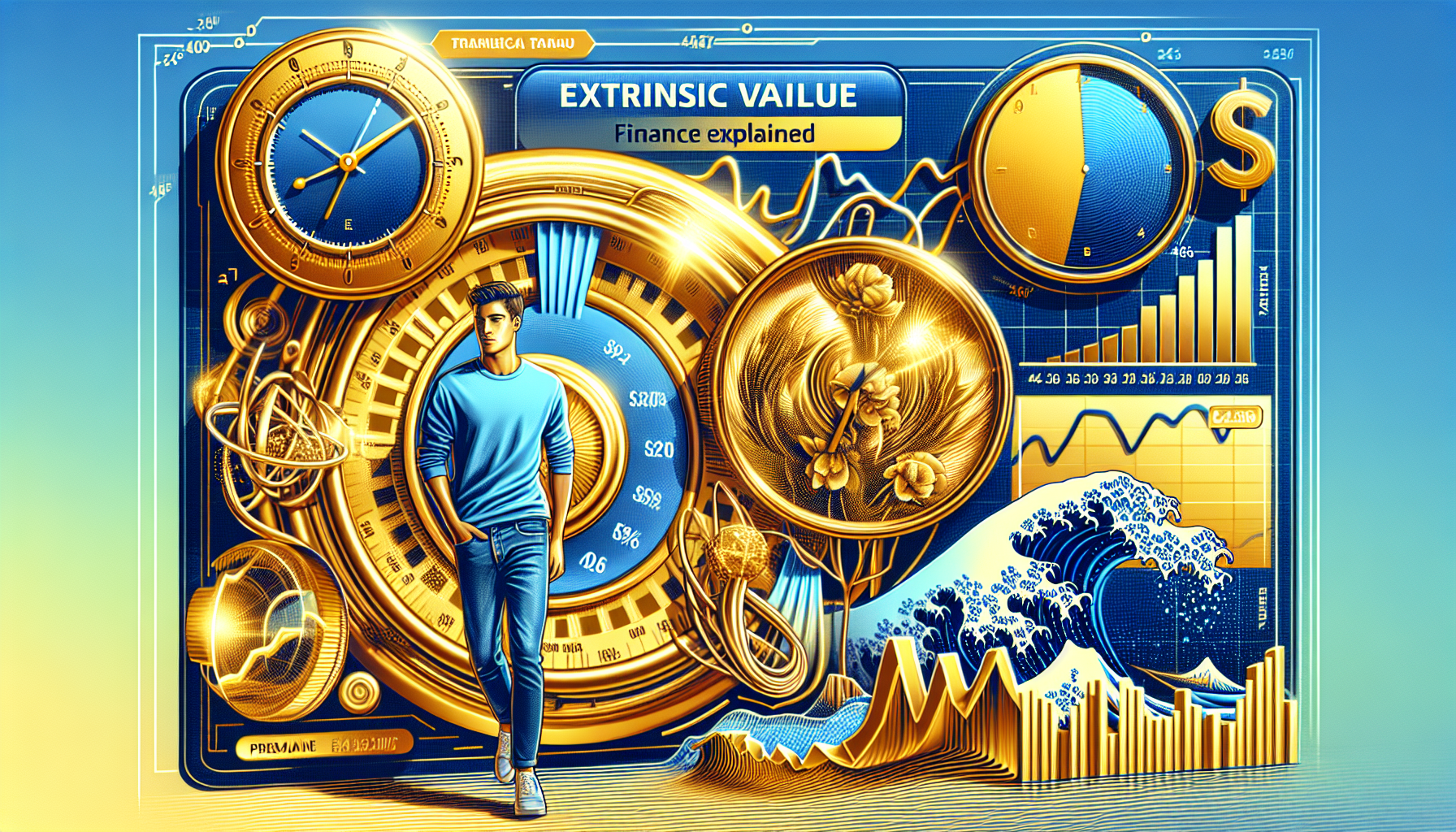In the context of the stock market and options trading, "Extrinsic Value" (also known as "Time Value") is a crucial component of an option's total premium. It represents the portion of an option's price that exceeds its intrinsic value, essentially accounting for the probability of the option increasing in value before it expires. Extrinsic value is influenced by factors other than the underlying asset's current price, including time until expiration, implied volatility of the underlying asset, and interest rates.
Components of an Option's Premium
An option's premium is composed of two parts: intrinsic value and extrinsic value. Intrinsic value is the real, tangible value of an option if it were exercised at the moment, dependent solely on the position of the strike price relative to the current market price of the underlying asset. In contrast, extrinsic value represents the additional value attributed to an option based on the potential for its price to change due to market conditions over time.
Determinants of Extrinsic Value
- Time to Expiration: The more time an option has until expiration, the higher its extrinsic value. This is because there is a greater chance that the underlying asset's price will move in a favorable direction.
- Implied Volatility: Higher volatility increases the likelihood of the underlying asset's price moving significantly, which can increase the option's chance of becoming profitable. Therefore, options on more volatile assets typically have higher extrinsic values.
- Interest Rates: Rising interest rates can increase the extrinsic value of call options due to the cost of carry benefit associated with holding an option versus the underlying asset.
Extrinsic Value in Selling Stock Options
For option sellers, extrinsic value is particularly significant because it represents the potential profit they can earn from selling the option, assuming the option does not go in the money. Sellers capitalize on the extrinsic value by writing options, hoping to keep this portion of the premium as profit when the option either expires worthless or is closed out for less than it was sold for. The decay of extrinsic value over time, known as "time decay," benefits sellers as it erodes the value of the options they have written, potentially leading to profits if the underlying asset does not move against their position significantly.
Conclusion
Extrinsic value is a fundamental concept in options trading, encapsulating the speculative component of an option's price. Understanding and managing extrinsic value is essential for traders, especially option sellers, who rely on the erosion of this value over time to realize profits from their trading strategies.
